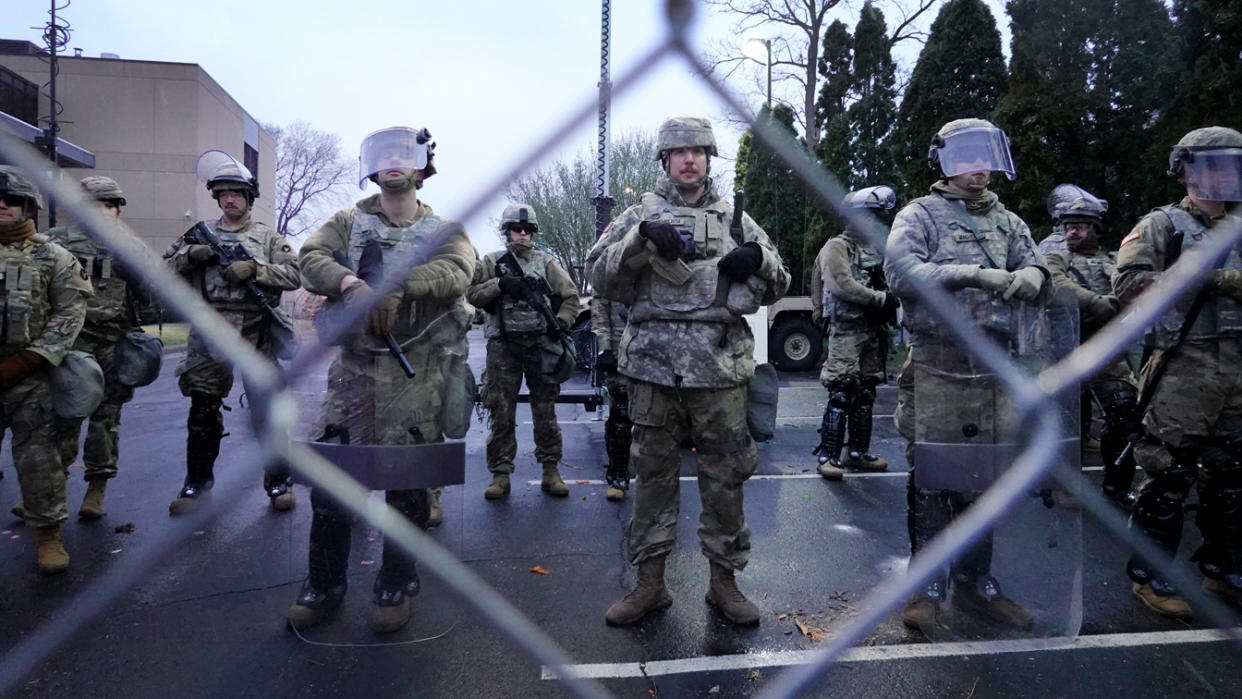Death of Daunte Wright puts focus on old debate: Should officers live in the communities they police?
At a Tuesday press conference following the resignation of the officer who killed Daunte Wright during a traffic stop, Brooklyn Center Mayor Mike Elliott was asked about the number of officers on the Minnesota city’s police force who lived in the area.
“As of this moment, I don't believe any one of our officers live in Brooklyn Center,” Elliott said of the roughly 50-member police force. “That is something that we are aware of. Up until this time, obviously, we had different leadership over the police department. We do feel very strongly that we need officers to be from the community. Obviously, not every officer can live in the city where they work.”

While arguing that it wouldn’t be “feasible or practical,” Elliott acknowledged “there is a huge importance to having a significant number of your officers living in the community where they serve.”
“It helps inform the culture of the department,” he continued. “It helps infuse knowledge of the community into policing, and I think that can only help to enhance the work of the officers. And it can only help make their jobs better or easier.”
Elliott was also asked about the demographic make-up of the police force in Brooklyn Center, which is Minnesota’s most diverse city, and stated that there were “very few people of color in our department and specifically Black, officers who are Black, we have very few.”
Debates over residency requirements for police and other municipal workershave been ongoing for decades, includinga 1976 Supreme Court ruling that held up Philadelphia’s residency requirements as constitutional after a firefighter was terminated for moving to New Jersey. They gained a renewed focus last year following the wave of protests that stemmed from the death of George Floyd.
Spending on police often dwarf other portions of municipal budgets, which means in many communities of color, public salaries are being paid to personnel who live in neighboring (and sometimes much whiter) communities. A number of mayoral candidates in New York City, which will elect a new chief executive later this year, have announced their support forrequiring NYPD officers to live within the city.
Criminal justice experts and some police reform activists, however, do not view residency requirements as a useful change, with critics saying it makes it more difficult to hire.A 1999 study actually found that residency requirements were actually correlated with less public confidence in the force.
When the Minneapolis City Council considered a measure restoring residency requirements in 2017, the group Communities United Against Police Brutality recommended against them. The organization reiterated that position in reform recommendations published last year in the wake of Floyd’s death.

“Over the years, our organization has researched the idea of residency as either a requirement or an incentive,”read the report. “We believe in evidence-based best practices for police reform. Throughout our research, we have never encountered a shred of evidence that requiring or incentivizing police officers to live in the communities in which they work has any positive effect on the quality of policing.”
The Minneapolis Star Tribune’s editorial board agreed, writing that “encouraging rather than requiring residency is the best approach.”
In some areas where residency requirements are in place, officers will maintain addresses within city limits while having their permanent residence elsewhere. Last year,a police union leader in Kansas City said that some officers’ spouses didn’t want to live in the city, and as a result, “People are renting trailers in locations in the city just so they can spend two or three nights in Kansas City and go out where their families are.”
Still, in the wake of Floyd’s death and the ensuing protests, some cities have reinstated residency requirements. A law in Philadelphia that allowed police officers to move outside the city after five years of service wasrolled back in June as part of reforms passed by the city council.
“We need people to add to our tax base and if we need to prepare people, let’s prepare people,” Councilwoman Cherelle Parker said. “The people policing the city of Philadelphia should look like the city of Philadelphia.”
____
Read more from Yahoo News:
